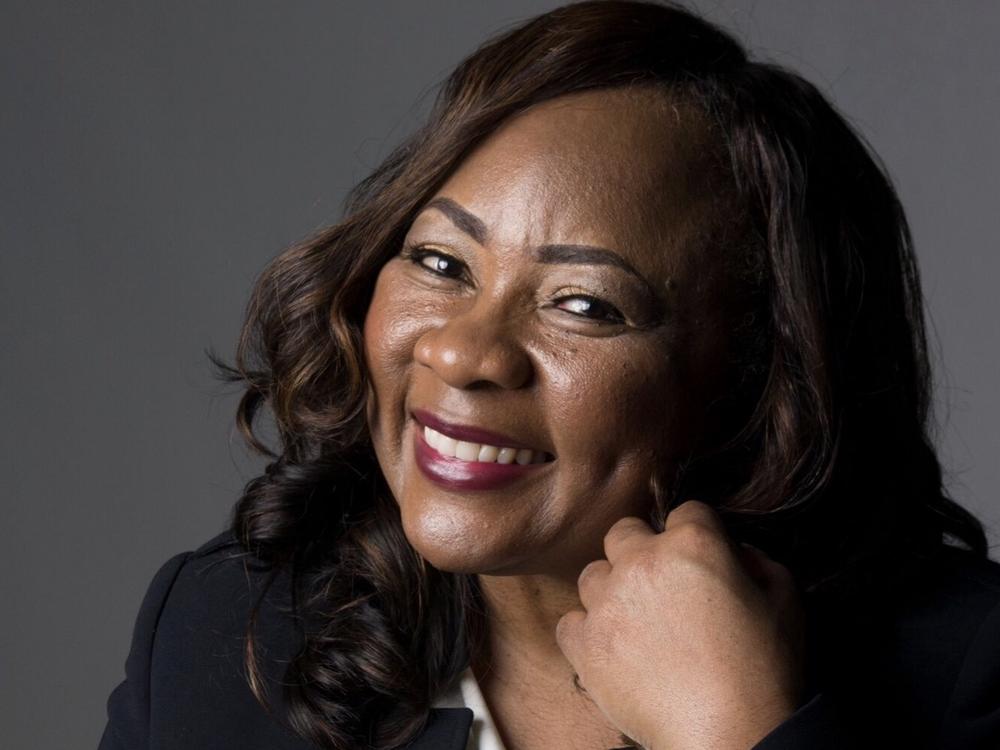Section Branding
Header Content
'Waste' Activist Digs Into The Sanitation Crisis Affecting The Rural Poor
Primary Content
Hookworm is an intestinal parasite often associated with poor sewage treatment and the developing world. It was long thought to have been eradicated from the United States — until a 2017 study revealed otherwise.
According to the study, more than one in three people in Alabama's Lowndes County tested positive for hookworm infection.
Hookworm spreads when people walk or play in soil contaminated with feces and the larvae of the worms penetrate their skin.
"This is not something that we test for in the U.S. because people don't anticipate that we have it," says activist and author Catherine Coleman Flowers.
It was Flowers' activism that spurred scientists to conduct the hookworm study. For 20 years, she's worked with advocacy organizations, philanthropists, business leaders and elected officials to shed light on the gaps in access to basic sanitation in rural America.
An Alabama native, Flowers has been awarded a MacArthur fellowship for her work on behalf of rural Americans living without proper sewage treatment. She says the hookworm study was a "smoking gun," that highlighted the sanitation and environmental problems the rural poor face.
Lowndes is a predominantly Black community, but Flowers notes that sanitation issues — and the health problems that tend to accompany them — are as much about class as they are about race.
"It's very hard to get people to pay attention to rural poverty because most people don't understand it," she says. "In Lowndes County, for example, a lot of it is about race, but poor white people are having the same problems."
Flowers writes about her life and the battle for universal sanitation in the new memoir, Waste: One Woman's Fight Against America's Dirty Secret. She is also the founder of the Center for Rural Enterprise and Environmental Justice.
Interview highlights
On why sanitation is a particularly bad problem in these rural parts of Alabama
First of all, there's no municipal system. Usually when people visit or especially if they call me and they've never been to a rural community, they ask, "Why don't they connect to a municipal system?" In a lot of rural communities and suburban communities around the United States, people own on-site septic systems. And the on-site septic systems are something that the homeowner, at least in Alabama, the homeowner, has to to purchase and put it in place.
Recently, we were working with a family who ... needed [an] on-site septic system, and we had the engineering done. You have to have a perc test done in the state of Alabama. A perc test is when they are checking the percolation rate or the rate in which water drains to the soil. And that can determine whether or not what type of septic system is needed in that location. Lowndes County has dense clay soils. It holds water, so it makes it harder.
The other factor that we have found to be a problem is the water table. The water table is high, and the water table is getting higher because of sea level rise. A lot of people do not account for that when they are talking about on-site sanitation.
This particular family that we were trying to help, they went down 25 feet and struck water. That's how high the water table was. ... So that means that there's a need for a different type of system. ... The system needed to treat wastewater from the home would have taken a close to two thirds of the [half acre] property. And it would have cost $28,000, and most families — not just poor families, but middle-class families in Lowndes County and other places in Alabama — could not afford that.
On how climate change affects how these septic systems work
We're still using technologies that were developed before we had the type of rainfall that we have, before we had the type of conditions that we have with climate change in having all these storms coming ashore and we get more rain or we get deluges of rain at one time.
Even before now, when I was growing up in Lowndes County and my family had a septic system, the sewage would come back into the homes and sometimes come back into the bathtub, and we thought it was a plumbing problem. But because my organization did a house-to-house survey and we went to over 1,000 homes in Lowndes County and we kept hearing the same problems over and over again, and under the same conditions, we realized there was a pattern. And it's not just that they're not being maintained.
We have to find something that's going to work. And now I'm hearing from people around the country that are saying the same thing. We have to get the people that are designing these systems to listen so they can change them and make them work, hopefully, or we need to create something new and different.
On how the health department in Lowndes County issued citations if residents didn't have permits for septic systems
What was happening in Lowndes County at the time, people were being cited ... and [the health department] said because the problem was so prevalent throughout the state, we were told that at that time that their stance was to only act if somebody reported it. So when it was reported to [the health department environmentalist], he would go see the situation and then he would send them a citation giving them so many days to get it corrected. And after they didn't get it corrected within whatever that period of time was, they would go to court and the judge could issue an order for them to correct it, and when they were being arrested was when they apparently violated the order.
I went to court at the invitation of the environmentalist. That's how I knew they were in court that day. The health department's environmentalist was concerned that the person, a young man, would lose his job if he was arrested that day, if he was placed under arrest because he could not afford to put in his septic system. Apparently he had been trying to work with this young man, but it was just so expensive.
And so when I went to court, I did explain to the judge that he couldn't afford it. I also explained that we were trying to help understand the problem and try to help families that were facing potentially being arrested for not having septic systems. So she eventually let him go. But there was also another person in the courtroom and she had spent the weekend in jail and had been arrested for not having a septic system.
On finding new solutions to sewage treatment problems
My next phase in this is to partner and work with people to establish new technologies that could work, because I'm understanding that this problem is not just a Lowndes County problem. This is a problem all over rural America — and it's also a global problem. So we have to develop the type of technologies that [are] going to work.
To give you an example, going outside of Lowndes County, in the Miami-Dade County area, I saw an article that said that they had an over billion dollar septic tank problem because of sea level rise. They're not working. We have to acknowledge that a lot of these systems are not working and we have not understood that it's time for us to develop green wastewater treatment that takes into account climate change.
And until we do that, the infrastructure will continue to fail over and over and over again. And there shouldn't be another Catherine Flowers 20 years from now saying what I'm saying. If we can treat wastewater to drinking water quality and outer space, why can't we do it here on Earth?
Heidi Saman and Seth Kelley produced and edited this interview for broadcast. Bridget Bentz, Molly Seavy-Nesper and Carmel Wroth adapted it for the Web.
Copyright 2020 Fresh Air. To see more, visit Fresh Air.


